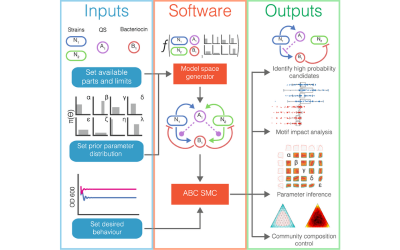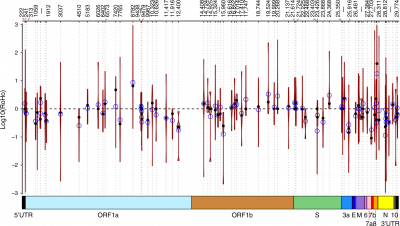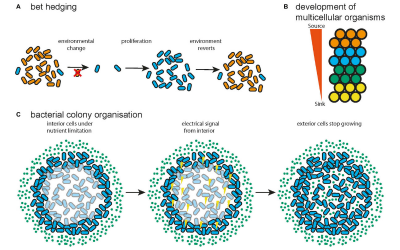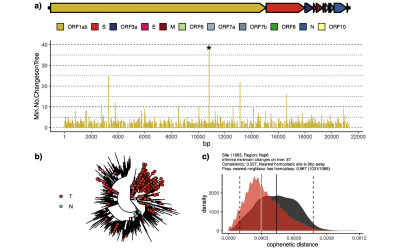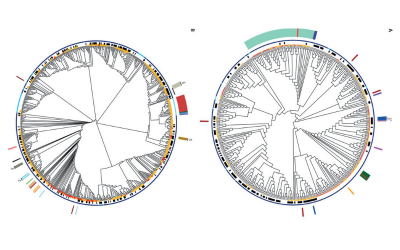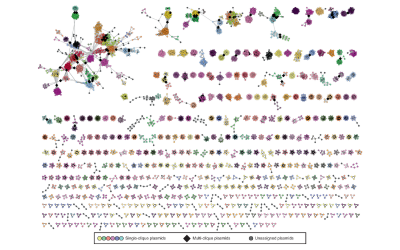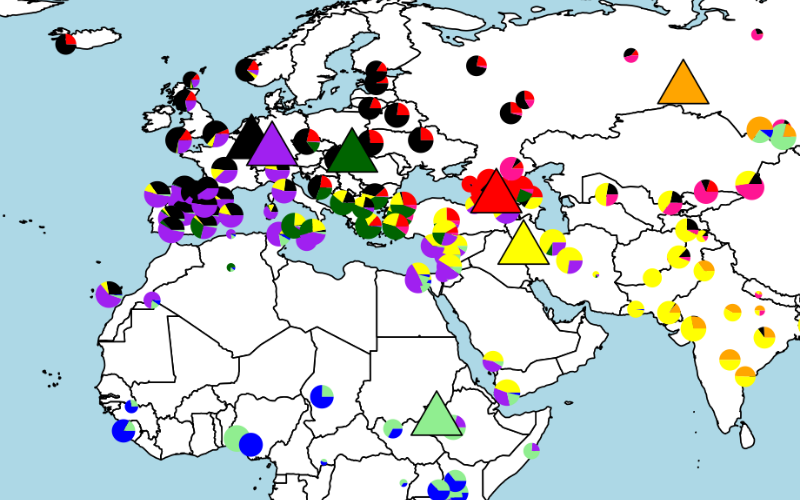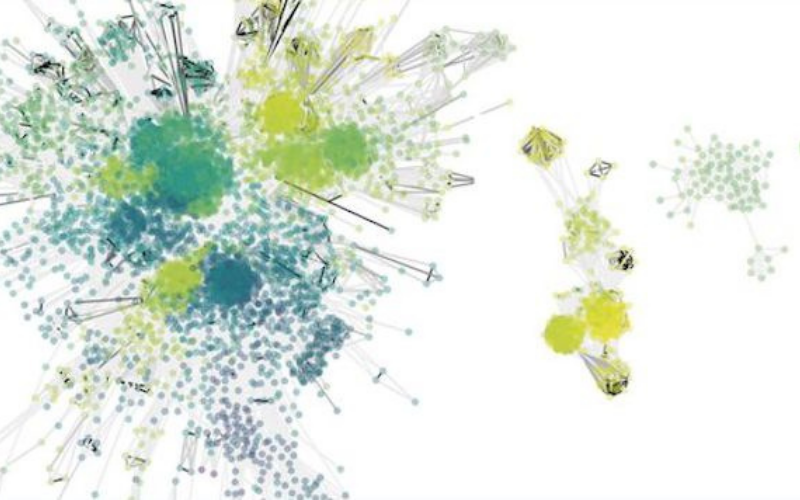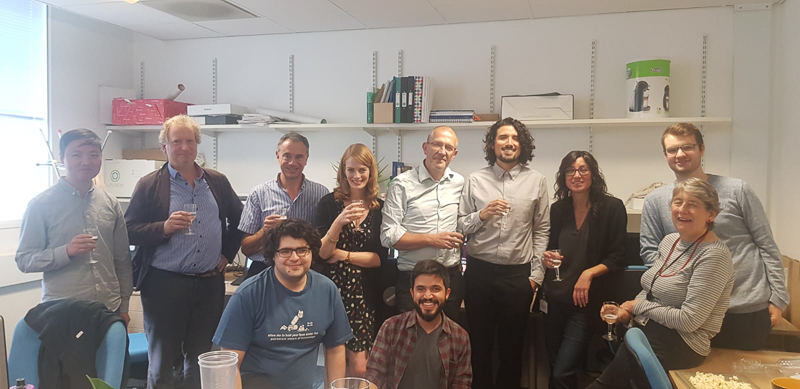Microbial Genomics
The biological sciences have witnessed a dramatic increase in the volume and scope of genomic data generated, shared and analysed, accompanied by corresponding developments in analytical tools. Such advances are providing new and unprecedented opportunities to study the processes of microbial evolution, ecology and epidemiology, unlocking fundamental insights with high translational value.
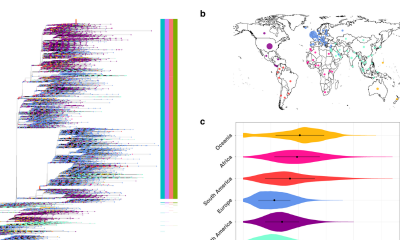
A major focus within microbial genomics at UGI is the development, adaptation and application of quantitative tools. These tools utilise expanding genomic resources to tackle outstanding questions in the evolution and epidemiology of human and wildlife pathogens and the role of microbial communities in shaping health and disease.
Work within the institute ranges from the fundamental - such as reconstructing the origins of past diseases - through to the more applied - tracking transmission of nosocomial infections (including the emergence and mechanisms of dissemination of antimicrobial resistance (AMR)). More broadly we seek to uncover the genomic determinants and interactions underlying the fitness of microbial lineages and to predict clinically relevant phenotypes from genotypic data.
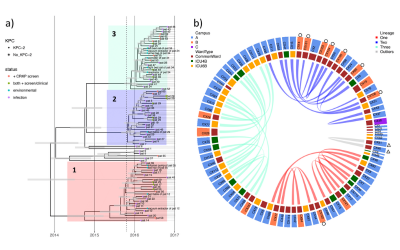
As well as consideration of full microbial communities - for example through multi-omics and experimental approaches - our research has encompassed the study of major species of drug resistant bacteria (including Mycobacterium tuberculosis, Klebsiella pneumoniae, Escherichia coli and Neisseria gonorrhoeae), epidemic and pandemic human and animal viruses (Coronaviruses, Ranaviruses), major species of fungal pathogens (Cryptococcus sp. and Batrachochytrium dendrobatidis) and malarial parasites (Plasmodium falciparum and Plasmodium vivax).
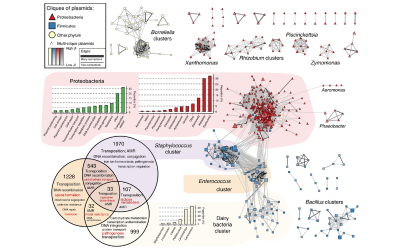
Major themes include:
- Reconstructing disease outbreaks and epidemics in space and time.
- The acquisition, maintenance and transmission of antimicrobial resistance in pathogenic bacteria.
- The age and origins of infectious disease agents - including ancient pathogen DNA [link to aDNA theme].
- The dynamics of microbial communities (biomes) in health and disease [link to human disease theme].
- Novel methods development for the study of microbial diversity [link to computational methods theme].
Research on Microbial Genomics is funded by:
BBSRC, The Newton Fund, Wellcome Trust, and others.
 Close
Close





